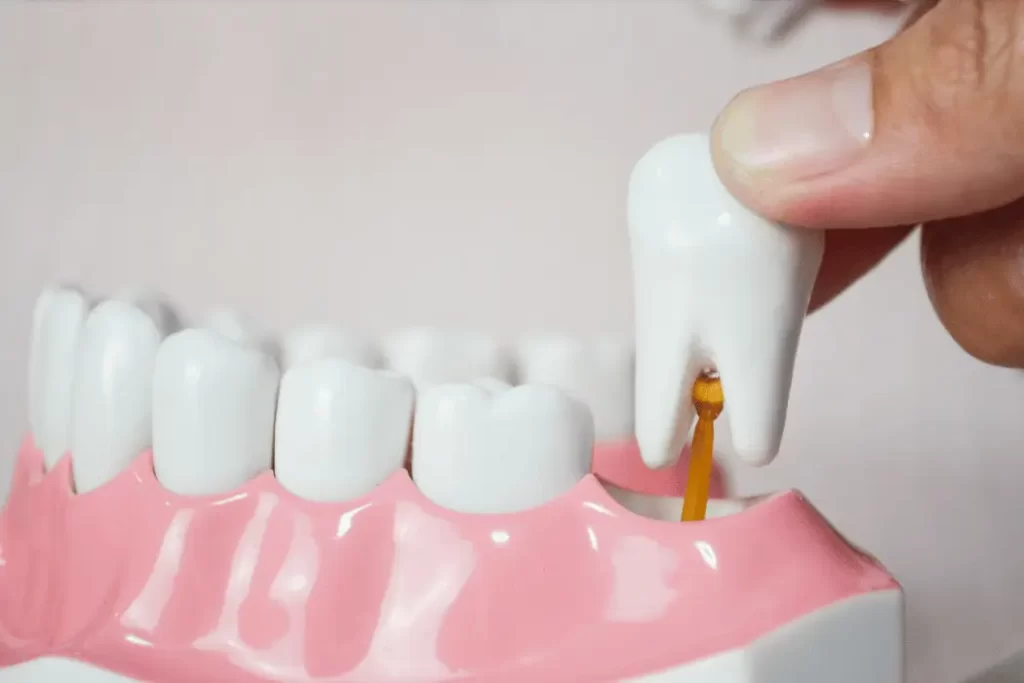If you’ve ever had your wisdom teeth extracted or are considering the procedure, you might have wondered, Can wisdom teeth grow back? This question sparks curiosity and concern among many individuals. In this informative blog post, we will delve into the fascinating topic of wisdom teeth regrowth and provide you with a comprehensive understanding of the regrowth process. Discover the truth behind this common query and gain valuable insights into the factors that influence the regrowth of wisdom teeth. Understanding the regrowth process of wisdom teeth is essential, and seeking accurate information from reliable sources of knowledge can help dispel any misconceptions. So, let’s explore the intriguing world of dental anatomy and uncover the truth about whether wisdom teeth can truly grow back.
What are wisdom teeth?
Wisdom teeth are the final set of molars that appear at the back of the mouth. They are called “wisdom teeth” because they typically emerge during the late teenage years or early adulthood, when an individual is believed to have gained some wisdom. These teeth were essential for our ancestors who needed them for chewing tough, unprocessed foods. However, with advancements in diet and oral hygiene practices, the need for wisdom teeth has diminished.
The process of wisdom teeth eruption
Wisdom teeth eruption is a natural process that occurs in most individuals. The journey of these teeth begins with the development of the tooth buds during early adolescence. Over time, the wisdom teeth gradually move towards the surface of the gums. In some cases, they may erupt without any complications, aligning properly with the adjacent teeth. However, this is not always the case.
Common issues with wisdom teeth
Due to limited space in the mouth, wisdom teeth often face challenges when attempting to erupt fully. This can lead to various issues, such as impaction, crowding, and misalignment. Impacted wisdom teeth occur when the tooth is unable to fully emerge from the gum line. This can cause pain, swelling, and infection. Crowding occurs when there is insufficient space for the wisdom teeth, leading to overcrowding and shifting of neighboring teeth. Misalignment refers to the wisdom teeth growing at an angle, potentially damaging adjacent teeth.

Wisdom teeth extraction
In many cases, the recommended course of action for impacted or problematic wisdom teeth is extraction. Wisdom teeth extraction is a common dental procedure performed by oral surgeons or dentists. The procedure involves the removal of one or more wisdom teeth through surgical means. Extraction is often necessary to alleviate pain, prevent infection, and maintain overall oral health.
Can wisdom teeth grow back?
Contrary to popular belief, once wisdom teeth are extracted, they do not grow back. The regrowth of wisdom teeth is an extremely rare occurrence. When wisdom teeth are removed, the tooth buds and underlying tissues are typically extracted as well. This eliminates the possibility of regrowth.
Understanding the regrowth process
Although wisdom teeth do not typically grow back, there have been a few documented cases of tooth-like structures developing in the same area after extraction. However, these structures are not actual wisdom teeth, but rather remnants or fragments left behind during the extraction process. They are often misinterpreted as regrown wisdom teeth due to their similar appearance.
Factors affecting regrowth
The regrowth of wisdom teeth, or tooth-like structures, is influenced by several factors. The main factor is the completeness of the initial extraction. If all the tooth buds and tissues are not entirely removed during the extraction, there is a higher chance of remnants developing into tooth-like structures. Additionally, individual variations in healing processes and the presence of stem cells in the surrounding tissues can also play a role in the regrowth process.
The role of genetics
Genetics can also play a role in the regrowth of wisdom teeth. Some individuals may possess genetic factors that promote tooth development even after extraction. These genetic variations can contribute to the presence of remnants or fragments evolving into tooth-like structures over time. However, it is important to note that such occurrences are still extremely rare.
Complications of wisdom teeth regrowth
In cases where remnants or fragments do develop into tooth-like structures, complications can arise. These structures may cause discomfort, infection, and misalignment. It is crucial to address such complications promptly and seek professional dental care to prevent further oral health issues.
Preventive measures
While the regrowth of wisdom teeth is rare, it is essential to maintain good oral hygiene practices to prevent complications and the need for further extractions. Regular brushing, flossing, and routine dental check-ups can help monitor the condition of existing wisdom teeth and identify potential issues early on. If problems are detected, a dentist can recommend appropriate treatment options.
Conclusion
it is important to understand that once wisdom teeth are properly extracted, they do not grow back. While the regrowth of wisdom teeth may be a concern for some individuals, it is simply not a natural occurrence. The misconception surrounding the regrowth process can be attributed to various factors such as residual fragments or the eruption of a new set of molars. However, it is crucial to consult with a dental professional for accurate information and appropriate treatment options. So, if you have been wondering, Can wisdom teeth grow back? rest assured that once they are properly removed, they are gone for good.
FAQs
1. Can wisdom teeth grow back after being fully extracted?
No, wisdom teeth do not grow back after they have been fully extracted. The regrowth of wisdom teeth is an exceptionally rare occurrence.
2. Are there any signs of wisdom teeth regrowth?
Signs of wisdom teeth regrowth, or the presence of tooth-like structures after extraction, may include discomfort, swelling, or a noticeable change in the mouth’s appearance. If you experience any of these symptoms, it is advisable to consult with a dental professional.
3. How long does it take for wisdom teeth to regrow?
The regrowth of wisdom teeth, or tooth-like structures, is not a predictable process. If remnants or fragments are left behind during extraction, it can take several months or even years for them to develop into tooth-like structures.
4. Can I prevent wisdom teeth regrowth?
While the regrowth of wisdom teeth is rare, practicing good oral hygiene and scheduling regular dental check-ups can help prevent complications and identify any potential issues early on.
5. Is wisdom teeth extraction always necessary?
The necessity of wisdom teeth extraction depends on various factors, including the individual’s oral health, the position of the teeth, and the presence of any complications. A dental professional can evaluate your specific situation and recommend the appropriate course of action.


